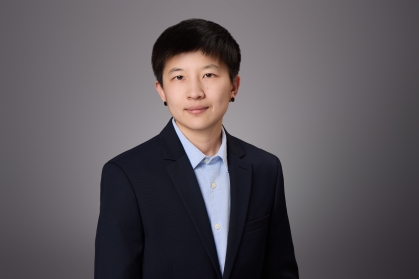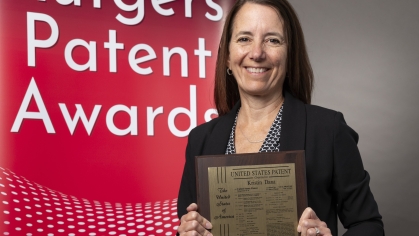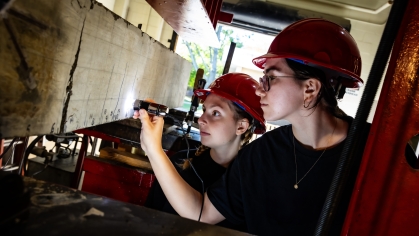CEE Professor Awarded NSF CFIRE Grant to Speed the Use of Cell-Free Systems to Grow the Bioeconomy

As a co-principal investigator on a National Science CFIRE (Advancing Cell-Free Systems Toward Increased Range of Use-Inspired Applications) initiative, Yalin Li, an assistant professor in the School of Engineering Department of Civil and Environmental Engineering (CEE), has received $629,000 from a $7.8 million team grant.
The NSF has awarded more than $32 million in grants to four teams that are challenged to advance cell-free technologies. Li’s team, led by Caravel Bio, will explore “Protein Evolution in Spore-Enabled TXTL Systems.”

Each of the four projects aims to reduce the cost of cell-free, in vitro systems rather than cell-based in vivo systems in biochemical applications with the potential to benefit industries ranging from agrochemicals to pharmaceuticals and biomaterials – and ultimately spur the growth and leadership of the U.S. bioeconomy.
“Our three-year project uses bacterial spores as the functional carrier for recombinant proteins, chip-based DNA synthesis and expression to expedite the gene function optimization and genetic code expansion to produce designer proteins in model organisms,” Li explains.
Li’s team will test their approach in three arenas: reducing the cost of DNA synthesis, developing cost-effective vaccines for livestock and pets, and engineering specific enzymes for use in chemical manufacturing.
A Focus on Affordable Cell-Free Systems
At present, according to Li, using cell-free systems to synthesize genes to make proteins is prohibitively expensive. Her team aims to reduce this cost through a combination of strategies: by using bacterial spores to carry the information needed to make new proteins; by using a chip-based platform to make gene design screening more efficient and affordable; employing a unique technology to correct error modules in synthesized genes; and understanding where the systems are most cost competitive in order to design the production process most effectively.
As a co-PI, Li is tasked with establishing a benchmark for cell-free systems’ cost through techno-economic analysis and applying machine learning approaches for design optimization. Current cost projections vary widely, according to Li, and she is hopeful that by providing a more complete – and accurate – understanding of the cost. “I believe this information will be very helpful for early-state technologies involved in cell-free systems.
“With our team’s approach, we’re confident we can greatly reduce the cost of in vivo cell biosynthesis, thus establishing a new cost benchmark,” says Li. “I’m excited about the fact that we’re pushing the boundaries for cell-free systems – or biotechnology in general. This is a brand-new area with very limited information, so our contributions will be very substantial.”
In describing the project, CEE professor and department chair Nenad Gucunski agrees, saying, “This work will establish a universal workflow for protein engineering and application from design to functional validation.”


